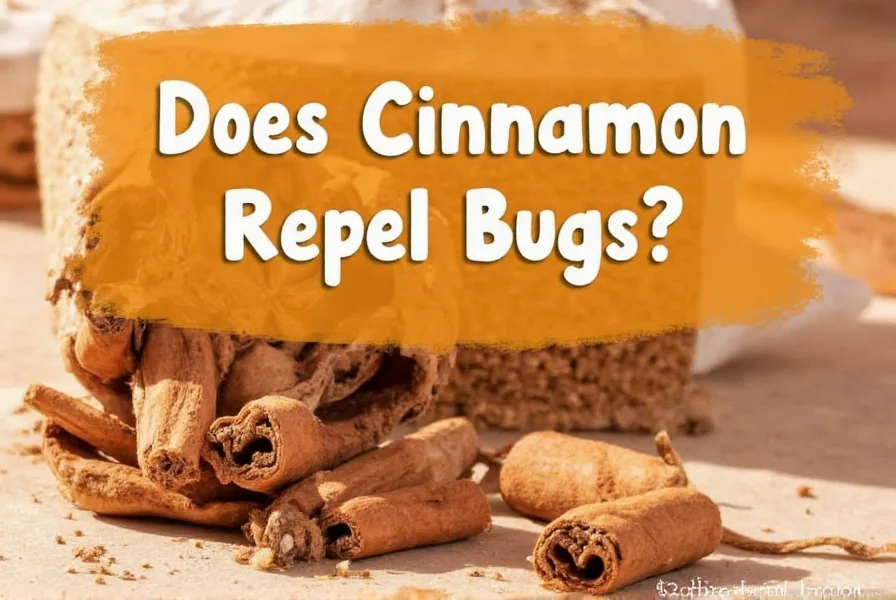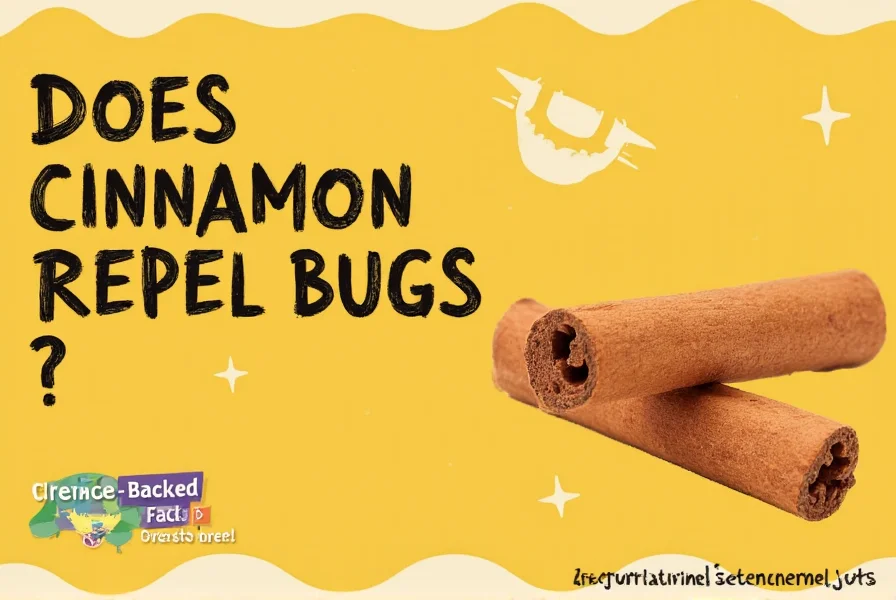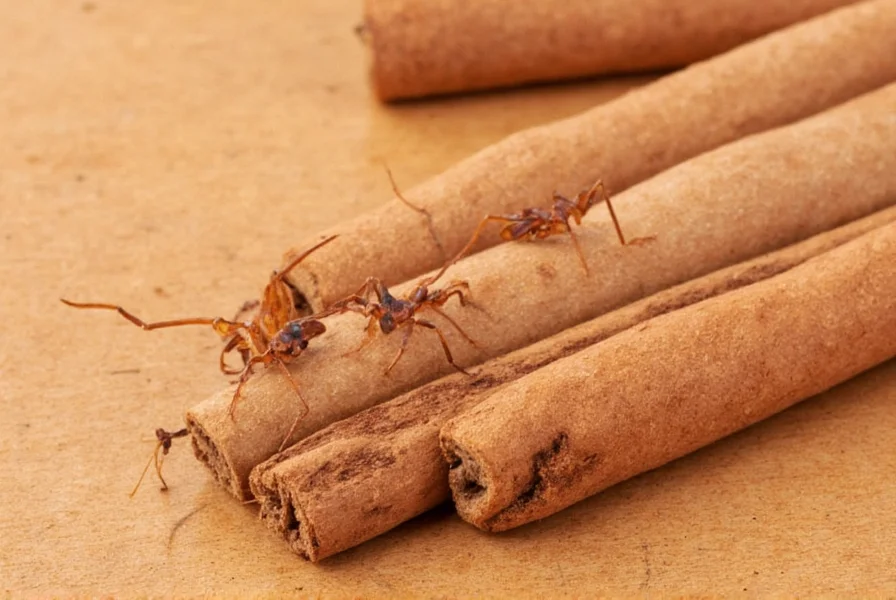Yes, cinnamon can repel certain bugs, but its effectiveness varies by insect species. Scientific research shows cinnamon essential oil and ground cinnamon disrupt insect sensory systems, particularly for ants, mosquitoes, and some beetles. However, it's not a comprehensive solution for serious infestations and works best as a preventive measure rather than a complete pest control method.
Many homeowners seek natural alternatives to chemical pesticides, and cinnamon has gained popularity as a potential bug repellent. But does this kitchen staple actually work against common household pests? Let's examine the scientific evidence and practical applications.
The Science Behind Cinnamon's Bug-Repelling Properties
Cinnamon contains cinnamaldehyde, eugenol, and other volatile compounds that interfere with insect sensory receptors. These compounds mask pheromone trails that ants use for navigation and create barriers that many insects avoid. Research published in the Journal of Insect Science demonstrates that cinnamon essential oil exhibits significant repellent activity against several common pests.
A 2019 study from Kansas State University found that cinnamon oil repelled up to 85% of Argentine ants in laboratory conditions. The researchers noted that "cinnamaldehyde disrupts the ants' ability to follow pheromone trails, causing disorientation and preventing colony communication." While promising, these results were achieved with concentrated essential oil, not the ground cinnamon typically found in kitchens.

Which Bugs Does Cinnamon Actually Repel?
Cinnamon shows varying effectiveness against different insects:
- Ants: Most effective against common household ants including Argentine ants, odorous house ants, and pavement ants. Cinnamon disrupts their pheromone trails.
- Mosquitoes: Cinnamon oil demonstrates moderate repellent properties, though less effective than DEET-based products.
- Spiders: Limited evidence suggests some spider species avoid cinnamon-treated areas.
- Fruit Flies: Ground cinnamon sprinkled around fruit bowls may help deter fruit flies.
- Cockroaches: Minimal effectiveness against most cockroach species.
It's important to note that cinnamon works primarily as a repellent rather than an insecticide. This means it may prevent bugs from entering certain areas but won't eliminate existing infestations.
Cinnamon vs. Other Natural Bug Repellents
| Repellent | Effectiveness Against Ants | Effectiveness Against Mosquitoes | Duration of Protection | Safety for Pets |
|---|---|---|---|---|
| Cinnamon oil | High | Moderate | 2-4 hours | Moderate (use with caution) |
| Vinegar solution | Moderate | Low | 1-2 hours | High |
| Peppermint oil | High | Moderate | 3-5 hours | Low (toxic to cats) |
| Lemon eucalyptus | Moderate | High | 6+ hours | Moderate |
| DEET (chemical) | N/A | Very High | 8+ hours | Low (with precautions) |
Practical Applications for Home Use
For those interested in trying cinnamon as a natural pest control method, here are evidence-based approaches:
Cinnamon Barrier Method
Sprinkle ground cinnamon along baseboards, windowsills, and door thresholds where insects might enter. This creates a sensory barrier that many insects will avoid crossing. Reapply after cleaning or when the scent dissipates (typically every 2-3 days).
Cinnamon Essential Oil Spray
Create a more potent repellent by mixing:
- 10-15 drops cinnamon essential oil
- 1 cup water
- 1 teaspoon vegetable oil (to help the mixture adhere)
Shake well before use and spray around entry points. This solution provides better coverage and longer-lasting protection than ground cinnamon alone. Remember to patch test on surfaces first, as cinnamon oil can stain some materials.

Limitations and Safety Considerations
While cinnamon offers a natural pest control option, it has important limitations:
- Temporary solution: Requires frequent reapplication, especially after cleaning or rain
- Limited scope: Works best as a preventive measure, not for eliminating established colonies
- Pet safety: Cinnamon essential oil can be toxic to cats and potentially irritating to dogs if ingested in large quantities
- Human sensitivity: Some people may experience skin irritation from direct contact with cinnamon oil
- Not a complete solution: Won't address the root cause of infestations like food sources or entry points
For severe infestations, professional pest control remains the most effective solution. Cinnamon works best as part of an integrated pest management approach that includes sealing entry points, eliminating food sources, and maintaining cleanliness.
When Natural Remedies Aren't Enough
Natural repellents like cinnamon have their place in household pest management, but certain situations require more comprehensive solutions:
- Visible nests or colonies inside your home
- Pests causing structural damage (termites, carpenter ants)
- Health concerns from disease-carrying insects
- Infestations that persist despite preventive measures
In these cases, consult a licensed pest control professional who can identify the specific pest and recommend appropriate treatment options.











 浙公网安备
33010002000092号
浙公网安备
33010002000092号 浙B2-20120091-4
浙B2-20120091-4